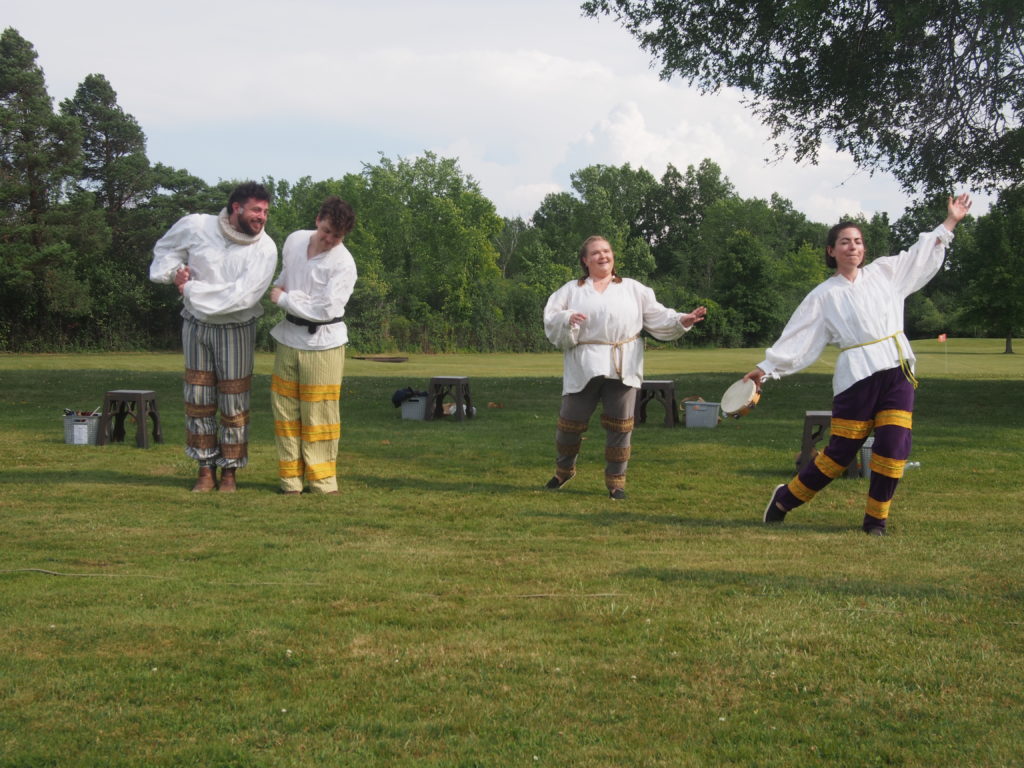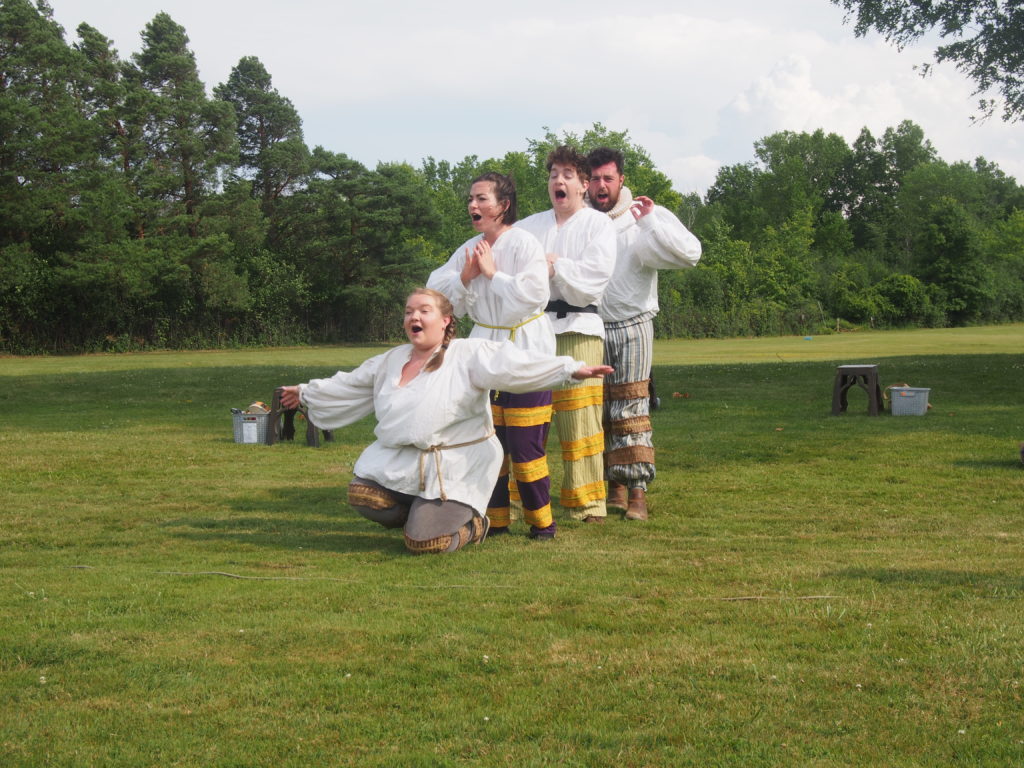Shakespeare comes to Grand Island!

Did you know that William Shakespeare invented hundreds of words and phrases? I knew that he invented some, but wasn’t aware of how many. On Friday, when I got to see a performance of “The Bard’s in Your Yard” at Grand Island’s Nike Base, I found out some of the words and phrases that William Shakespeare invented. Here are some of the words: laughable, satisfying, silliness, unreal, puking, dislocate, cold blooded, and cold hearted.
How about these phrases? Did you know that Shakespeare invented them?
- melted into thin air
- too much of a good thing
- the green-eyed monster of jealousy
- All that glitters is not gold
- The world is your oyster
- It’s all Greek to me
- wild goose chase
- love is blind
- wear your heart on your sleeve

Did you know that, in Shakespeare’s time, men played the roles of men, and boys played the roles of women? And sometimes, it was more complicated than that! Boys played women who were disguised as men. Men played men who were disguised as women who were disguised as men? Complicated? Yes, but fun! It was Shakespeare!
The production lasted for an hour and, as one of the characters said, it ended “happily and gorily to make them come back for morily!”
Oh I love Shakespeare but I had no idea he coined so many of our everyday phrases. Thanks for sharing, it looks like a fun time
You’re welcome! I had a great time, and I too had no idea that so many of our words and phrases were invented by William Shakespeare!
That sounds like a great time Alice! Interesting to know the phrases were invented by Shakespeare!
Yes, very cool. The words and phrases are such stuff as dreams are made of.
Oh, more Shakespeare!!!
Shakespeare was an interesting person for sure!
I know and use most sayings, even though to me the first one would be “vanished into thin air.”
Why didn’t women play the female role? Were they not allowed to be actresses?
Why didn’t women play the female role?
This was something in the theater that was unique to England. In the rest of Europe, women were permitted to perform on stage. And they were celebrated. But, in England, the theater and acting was not seen as a credible profession. Actors were viewed as people with loose morals and it was considered dangerous for female performers to be exposed to that. It wasn’t until the mid-1600s that women were permitted to perform on the public stage.
That was true for church music, too. It wasn’t until the mid-1600s that sopranos sang the top part in a four-part choir. Until then, it was men who could sing with a nice falsetto tone or castrati (fortunately, that tradition doesn’t exist anymore). In England, there is also the tradition of the boy soprano. Hence, the many men’s and boys’ choirs.